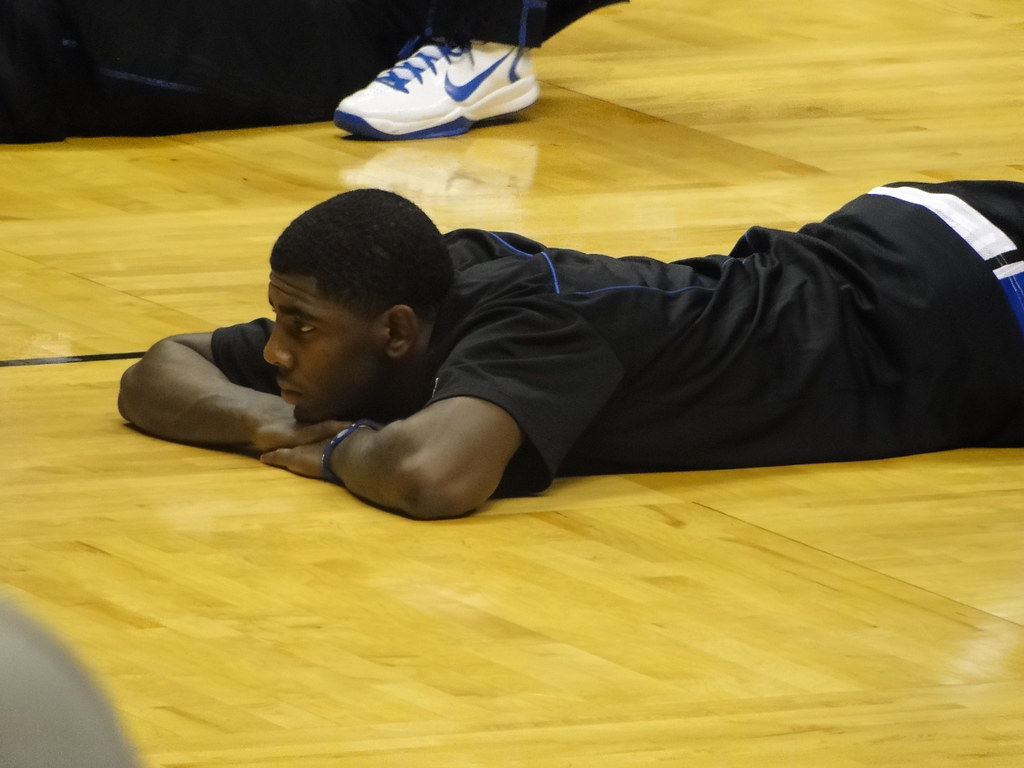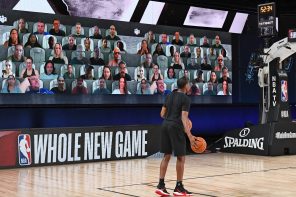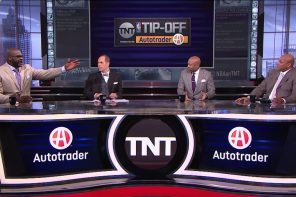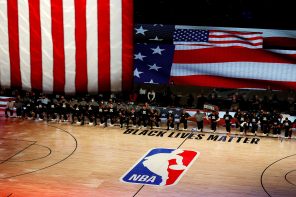Kyrie Irving is indefinitely and voluntarily absent from the Brooklyn Nets—again—and the team has decided to move forward without him. After early struggles, the Nets are returning to form, and the move begs questions about the value of his stardom going forward and illuminates a possible paradigm shift in the Nets’ philosophy of winning.
…the move begs questions about the value of his stardom going forward and illuminates a possible paradigm shift in the Nets’ philosophy of winning.
The Nets came out of the gates with middling intensity this season. Now though, they are looking better, and the necessity of their absent star is becoming questionable. Kyrie Irving has chosen to remain unvaccinated against COVID-19, a decision which first led to his unavailability for home games because of a local vaccine mandate, and then to him being disqualified by the Nets from playing at all. As protests outside the Nets’ stadium demonstrate, the conflict between Irving and the team is a contentious part of the overarching anti-vaccine narrative in the United States (though Irving has said that he’s not against the COVID vaccine in general). Within the NBA, however, it seems to have much to do with the Nets’ philosophy of winning and the status of Kyrie Irving as a viable superstar teammate.
One of the more lauded pieces of writing about sports over the past year was a bizarre hagiography of the Brooklyn Nets’ biggest stars. Sam Anderson’s article in the New York Times “Kevin Durant and (Possibly) the Greatest Basketball Team of All Time,” (previously titled “The Moody, Monkish Genius of Kevin Durant”) begins with the story of an asteroid striking the earth and the subsequent formation of the Chesapeake Bay. Immediately, this framing anecdote places the Brooklyn Nets’ trio of superstars in the intersection of the divine and the earthly, at the root of creation or at its moment of fulfillment–an attitude that carries through the rest of the piece. Though unspeakably overwrought, Anderson’s awestruck tone speaks volumes about the reverential way the NBA and the media view the highest circle of league superstars.
This valuation of the league’s superstars is emblematic of how teams are trying to win right now. Teams are assembled and disassembled—sometimes over the course of a single season—with only what Anderson calls a “knot of talent” kept intact. The superstar reigns supreme and the role players are, more or less, interchangeable. Playing alongside stars, instead of with them, has become the norm—at least in terms of philosophy.
The superstar reigns supreme and the role players are, more or less, interchangeable.
And to an extent, there’s justification for this paradigm—largely resting on the success of LeBron James. For years, Lebron’s greatness seemed to run so deep that no amount of mediocrity from the rest of the Cleveland Cavaliers could undermine another finals appearance. The Cavs historic finals comeback, in which LeBron led all players in blocks, rebounds, points, and steals per game, is perhaps the greatest modern testament to the value of a single player. The immediate ascension of the Raptors following their acquisition of Kawhi Leonard is another example of the potential value of sheer talent.
Teams are willing to give up a great deal for superstar talent. LeBron’s current team, the Lakers, gambled this off-season by adding a third superstar to their roster in Russell Westbrook while losing yet more of the role players who were a part of their championship roster from two years ago—whether through trades or an apathy toward re-signing free agents. Notably, role-player Rajon Rondo, a significant part of that 2019-20 championship run, is back with the Lakers after playing for the Atlanta Hawks and LA Clippers last year—a case of highly fickle team-building. The Nets’ current assemblage of stars—Irving, Kevin Durant, and James Harden—was built by dismantling a cohesive young core and is the most extreme example of this kind of team. Right now, the Nets have the best superstar trio in basketball and, as Anderson over-asserts, “(Possibly) the Greatest… of All Time.”
In spite of this, the Nets have decided to play without Irving at all, instead of playing without him just some of the time—a move that seems to constitute a reversal of the team-building strategy that brought us to this point. Writing off a whole superstar certainly seems antithetical to winning. Perhaps the Nets believed their ultimatum, along with pleas from his teammates, would cause Irving to get vaccinated, or maybe they justifiably believed that Harden and Durant are enough to carry them through. However, according to head coach Steve Nash, the decision was made collectively with “‘everyone [getting] a say.’” Thus, it seems unlikely that this is a ploy by the front office—rather it seems to have been a team-based decision. Furthermore, if one believes Harden that the intention was “‘to set… the entire organization on the same path,’” then it’s also a decision based on prioritizing team chemistry over a superstar.
But why now? Irving has voluntarily absented himself from the Nets before, admittedly under far less politically-charged circumstances, without the team taking such a public and definite stand about his return. The indefinite time scale of the vaccine mandate is a factor, as is the crucial importance of vaccines for bringing us through the pandemic. On a basketball level though, it may be that Kyrie has finally pushed the limits of individual superstar privilege so far that he violated the fundamental collectivity of a team sport—a collectivity that Harden suggests is being reasserted without Irving on the roster. If the Nets continue to turn it around this year and make a deep playoff run, then we should expect Kyrie to become less and less desirable as a teammate and, perhaps, for the Nets to move on from him when his contract expires after the 2022-23 season.








